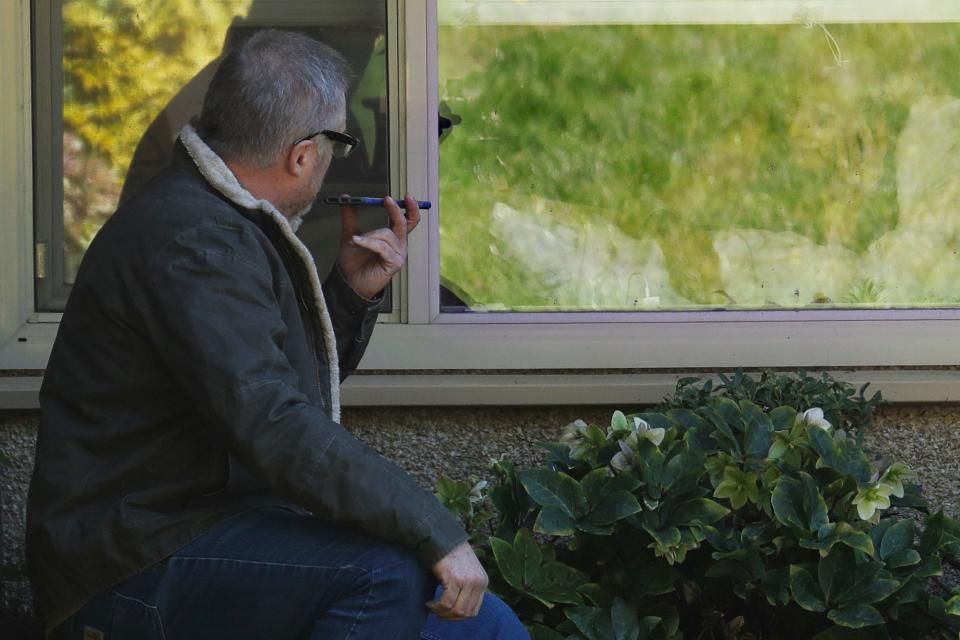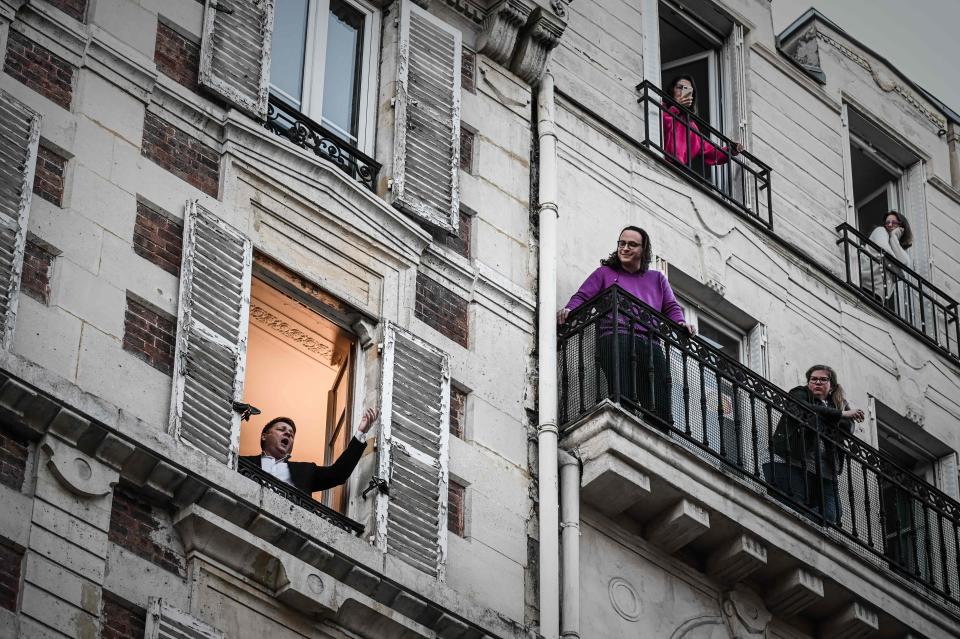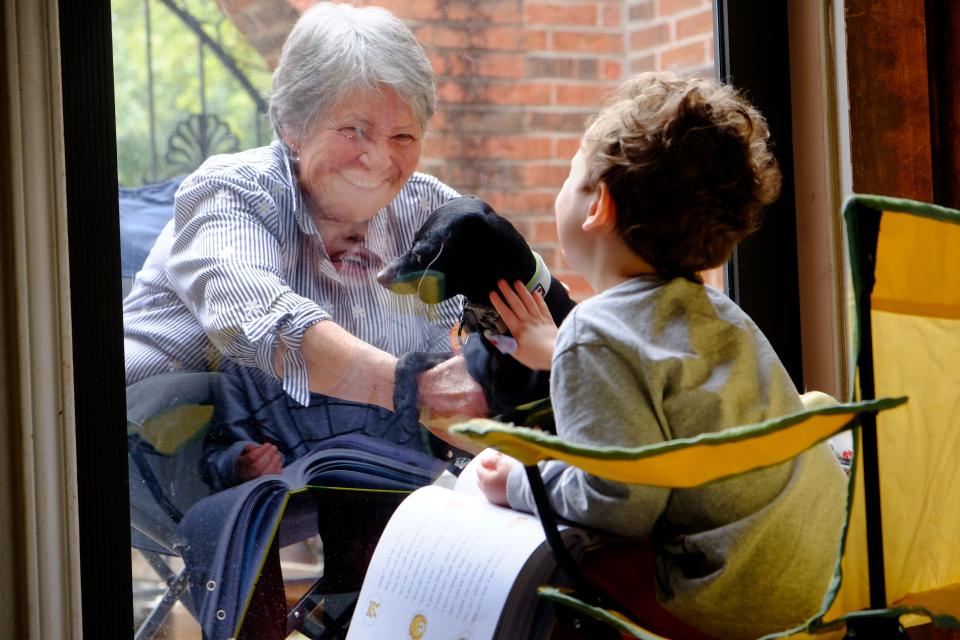Through the window, a different world
My room had a great view.
It was on the eighth floor of our apartment complex, and when you sat on the bed, all you could see were the tops of the trees and then endless sky. There were a lot of things I didn’t like about the apartment, but I loved the light that poured in through the giant windows.
The morning of March 19 was the last time I ever saw that view. The playground behind the apartment complex was barren. Fewer cars drove through the normally busy intersection, a symptom of spring break in a college town and the invisible enemy potentially looming in every one of us.
Like so many young adults, I moved back into my childhood bedroom. I’m holed up in Indianapolis with my mother and our irate cat. COVID-19 has forced us collectively to go to ground. We’re left staring out our windows.
Windows let the good air in and the bad air out. They let us see what creeps outside our doors. They offer a portal to the natural world from the created one.

Now that we’re forced to separate from each other, windows are vital tools for connection. In Kirkland, Washington, coronavirus ravaged the Life Care Center nursing home, infecting residents and workers and killing 37 people. The home forbade visitors, so adult children wrapped in winter coats sat in lawn chairs outside their parents’ windows. Workers inside the facility pressed phones into the residents’ hands so they could talk to their loved ones, trying to make the most of their already finite time together.

As normal life ground to a halt, people across Italy opened their windows and stepped out on balconies to sing. Their voices echoed off the buildings and into the night air, the empty streets becoming a concert hall. The act of singing with others is intimate. You breathe together. Each voice rises in harmony. You are part of a whole.
One Irish grandfather met his newborn grandson through the window of his son’s home, his face a picture of longing. In another world, he might have come inside, scooped the baby into his arms, posed for a picture that held three generations in one frame. His son would be beside him, exhausted and exhilarated.
One New York City couple, fearing they wouldn’t be able to hold their original wedding, rushed to the city’s Marriage Bureau to get their license. Their friend married them on the street as he leaned out a fourth floor window for the entire ceremony. He read an excerpt of “Love in the Time of Cholera”: “For they had lived together long enough to know that love was always love, anytime and anyplace, but it was more solid the closer it came to death.”
Those stories seize us by the throat because they so capture the essence of our predicament. We are all 6-year-old Theo Maitland, the boy in Austin, Texas, who reads books with his grandmother, but separated now by a window. Like Theo, we creep as close as we can to the people we love. We remember what it felt like to fling ourselves into their arms. We remember the soft wrinkles in our grandmothers’ necks. The way our dad’s shirt collar smelled after a long day at the office. We remember, and we press our palms to the glass.

We are not built for solitude. We can stock up on all the canned goods and toilet paper we can get our disinfected hands on, but there is no way to hoard human connection.
At this moment, our windows are some of the only places where we can share our lives with one another, where we can see each other and be seen in return.
Spring is coming. The sun will shine. We will emerge from the dark of isolation and into the light. The warm air will blow in the sweet smell of rain, and we will open our windows again to welcome it in.
This story was produced in partnership with the Media School at Indiana University.
Support journalism: Stories like this are possible because of subscribers
This article originally appeared on USA TODAY: Through the window, a world shaped by coronavirus

